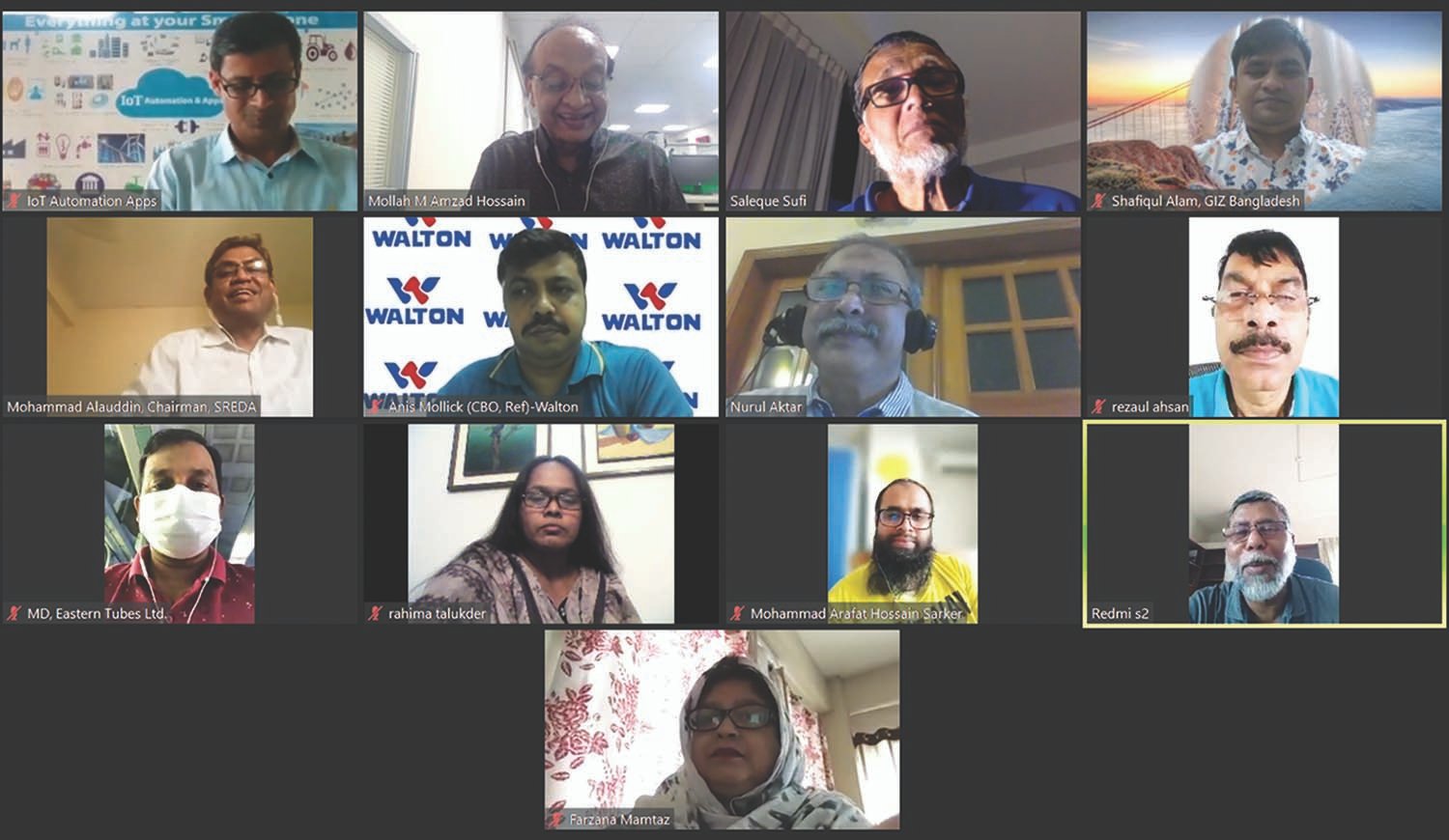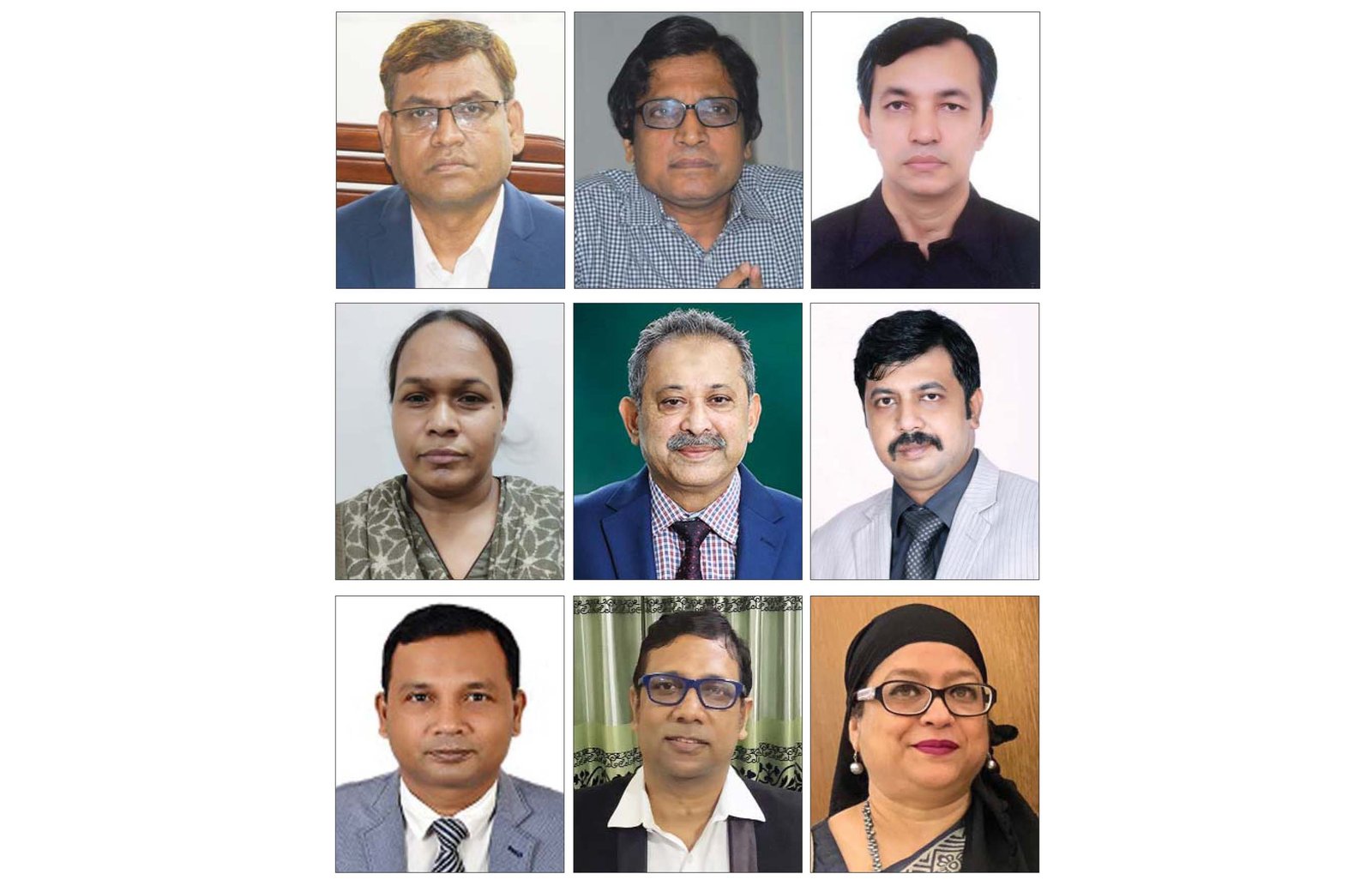
There is no alternative to ensuring use of energy-efficient electrical appliances for achieving the targets of reducing carbon emission. A large savings can be achieved from the lighting loads of domestic users which alone accounts for 30% of the total electricity use. For this, it is essential to create confidence among three stakeholders – consumers, producers and the government.

Sustainable and Renewable Energy Development Authority (SREDA), Bangladesh Standards and Testing Institute (BSTI) and Accreditation Board must take necessary initiatives for setting standards and implementation of star-labeling. Not only the local products, marketing of the imported appliances that would not comply with the set standards needed to be banned. BSTI must continue its intensive market monitoring for controlling the grey market in addition to putting an end to fake products. For these, the number of human capital in the relevant organizations and skills needed to be enhanced.
Relevant experts made the observation at a recent EP Talks titled “Energy Efficiency and Products Labeling” organized in collaboration with SREDA and GIZ Bangladesh. Mollah Amzad Hossain, Editor of Energy & Power magazine moderated the virtual discussion.

Mohammad Alauddin, Additional Secretary and Chairman of SREDA, attended the program as Chief Guest while Dr. Shamsul Alam, Professor of Daffodil University and Energy Advisor to Consumers’ Association of Bangladesh (CAB), and A.T.M. Mostafa Kamal, Additional Secretary of Power Division attended as the guests of honor.
Rahima Talukdar, Deputy Director of (BSTI), presented the keynote paper. Engr. Md. Nurul Aktar, CEO and Director of Energypac Electronics Ltd, Anisur Rahman Mollik, Chief Business Officer (Refrigerator) of Walton Hi-Tech Industries Limited, Syed Mohammed Saherul Azam, Managing Director of Eastern Tubes Limited, and Engr. Al Mudabbir Bin Anam, Program Coordinator, REEEP II, GIZ Bangladesh, were the panelists.
Mohammad Alauddin informed the meeting that SREDA was working on implementation of an Energy Efficiency and Conservation Roadmap for doubling the energy efficiency by 2030. There is no alternative to completely achieving the government-set goal for limiting carbon emission. For this, it is essential to finalize the standards of lights, fans, air-conditioners, refrigerators and other electrical appliances, and regulate the use of the appliances through labeling. SREDA has finalized a draft of a proposed act which is waiting for approval by the Power Division. Through energy auditing, we have learnt that the LED bulbs produced by Eastern Tubes Limited are of international standard. The emerging challenge is star-labeling of the products and setting these for imported appliances as well. In the meantime, the BSTI is going to introduce QR Code labeling for the products they certify. This will assist any consumers checking the quality through scanning the QR code using their cell phones.
SREDA on a standalone basis cannot achieve efficiency. Combined efforts of all stakeholders are essential for creating consciousness. We hope to achieve the confidence of all consumers in the days ahead. Now necessary manpower is being recruited by the SREDA and BSTI, and arrangements are being made for enhancing the efficiency.
Energy Advisor of CAB Prof Dr. Shamsul Alam observed that consciousness of consumers would not be enough for achieving the energy efficiency through ensuring the use of energy efficient appliances. For this, policy makers and implementing agencies concerned must also become more conscious. Criticizing the purchase of poor quality CFL bulbs with public money, he suggested ensuring greater responsibilities and transparency in such works in future. He said star-labeling alone cannot check the production and marketing of fake and substandard products. Mere formulating policies should not be enough for SREDA. Through enacting new law and policy, the SREDA should be made an independent regulator.
A.T.M. Mostafa Kamal, Additional Secretary of Power Division opined that the customers’ satisfaction must be the priority. Motivation is essential here. Users would be encouraged if they find that using energy-efficient appliances reduces power bills. They would then purchase such products. For that aim in view, the star-rating is being given.
We moved to CFL from incandescent bulbs and LED bulbs from tube lights. These have achieved popularity for giving more lights while still being cheaper. The LED bulbs also have a longer shelf life. China and Malaysia give incentives for using energy-efficient appliances. For example, let us say someone is purchasing an energy-efficient rice cooker, he is given a (500 units of whatever currency) discount straightaway. The seller gets reimbursed the money from the government later. We have to encourage our consumers with such incentives. We have to vigorously monitor marketing of products in the market.
Engr. Nurul Aktar, CEO at Energypac Electronics, expressed concern over fake items and copying standard products as those are being marketed in Bangladesh. This is badly hurting local manufacturers. Producers are financially losing from import of substandard products. There are no mandatory rules and regulatory oversight in importing appliances. Every shopkeeper at Nawabpur, Dhaka imports products. They care less for quality and standards. After setting standards and formulating policies, the imports must be regulated to ensure compliance. Time for inspection and checking the quality of imported products must also be reduced. There must be intense monitoring to check whether a producer after getting approval for manufacturing and marketing products was maintaining the approved standard and quality. The capacity of BSTI must be enhanced. In India, all use 48 inches fans. But in Bangladesh, 56 inches fans are mostly used. Use of ancient ballast and CFL bulbs must be completely banned. These would reduce waste of energy. If these can be done, confidence among the consumers, producers and government would be created.
Anisur Rahman Mallick, Chief Business Officer of Walton High-Tech Industries, informed that Walton is working with BSTI since 2018. It is exporting about 100 different kinds of energy-efficient products to 120 different countries. The energy-efficient compressors are being used in refrigerators. In 93 out of 100 cases, Walton air conditioners achieved 5 star-rating. We are planning to introduce the use of an inverter in ACs, which consumes the least power in South Asia. Walton is going to introduce a 12-16 watt solar fan soon.
Syed Mohammad Shaherul Azom of Eastern Tubes suggested ensuring quality of different LED bulbs and tube lights available in the market. The LED bulbs are now available at TK50-100 each. BSTI supervision is essential here. Quality control of products on one hand would save electricity and on the other hand would increase export of quality products. We are producing LED bulbs and tube lights to the standard specification and quality set by the BSTI. We will further enhance our quality to maintain our competitive edge in producing energy-efficient appliances.
Engr. Al Mudabbir Bin Anam of GIZ stressed the need for conducting market evaluation first. Standards must be finalized taking on board the opinion of all stakeholders. This must be market-oriented as well. Success would be achieved if 6 lights now produce the same lumen of lights as that produced through using 10 in the past. In such a way, a significant quantity of electricity can be saved in the country. For this, consciousness needs to be created at all levels. Achieving consumers’ confidence is also essential. For popularizing energy saving fans, it needs to ensure that these fans give off the same effect as others. All needs to understand that use of energy-efficient appliances reduces cost and at the same time, improved services are delivered. It needs to be checked and confirm the degrees of efficiency of the products available in the market. Priority must be given on setting up of standard testing laboratories equipped with modern devices.
Presenting the keynote paper, Rahima Talukdar of BSTI said now the quality is determined in three categories – national basis, regional basis (like Asia, Europe) and International (like ISO, IEC). BSTI is a member of almost all internationally accredited agencies. Energy star standard has been formulated in conformity with the international standards. Products possessing higher standards achieve higher ratings. Star ratings would be given in accordance with energy efficiency. Laboratories have been set up for testing products’ efficiency. The BDS ISO50001 standard is very important for us. This mandatory standard is the call of the day. We hope that the policymakers would take appropriate decisions towards achieving that goal.
Farzana Momtaz, Member of SREDA, said local products must maintain standards and quality. BSTI would check and monitor quality, but SREDA would set the star label. We need to set up more testing laboratories and improve the quality of the existing laboratories.
Arafat Hossain Sarkar, Assistant Director of BSTI, said we have brought positive changes to the policy of import of energy-efficient products and appliances. The National Board of Revenue (NBR) should be more vigilant. BSTI is going to introduce QR Code within a month. Consumers would be able to check the quality of products using the mobile phones.



